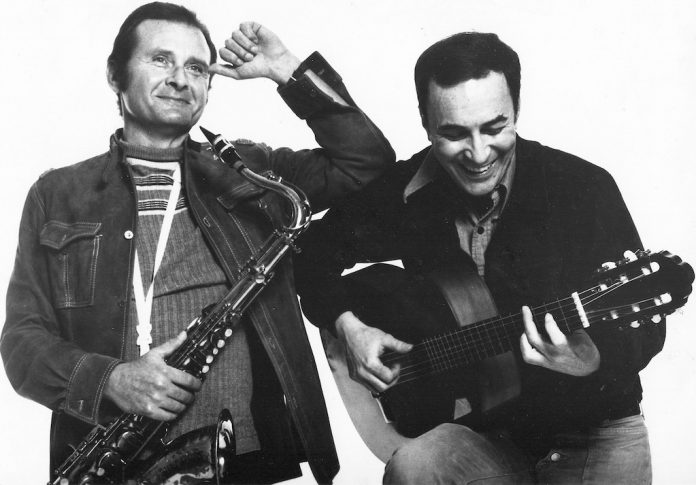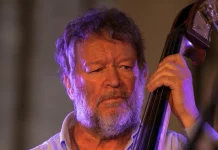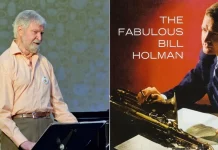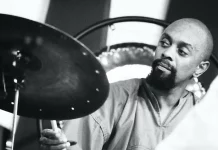A key figure in the bossa nova explosion of the early 1960s, João Gilberto was often reclusive, rarely gave interviews, and disliked performing in public, yet he was unquestionably hugely influential. From the late 1940s and through the next decade, he developed a distinctive style of playing guitar and also an instantly recognizable singing voice.
‘Maybe I would like to go back to when I was a boy. After that I learned too many things’
In 1958 he brought his musical talents to a recording of Chega De Saudade (a composition by Antônio Carlos Jobim, João Donato and Vinicius de Moraes). Often recorded subsequently, sometimes with an English-language lyric and under the title No More Blues, Gilberto’s version remains definitive. In 2000, it was inducted into the Grammy Hall of Fame, while the album on which it appeared entered the Latin Grammy Awards Hall of Fame in 2001.
Even more successful was his 1963 recording of The Girl From Ipanema (Jobim, de Moraes). On this, Gilberto first sings in Portuguese, then his wife, Astrud Gilberto, sings a chorus in English before Stan Getz plays a tenor saxophone solo. This appeared on Getz/Gilberto, which won the 1964 Grammy Award as Album of the Year, ground-breaking for an album with jazz credentials, while the song became an international hit that catapulted Gilberto to fame he did not relish. Although he lived for a while in the USA, he disliked playing in large venues, refused to play if anyone in the audience talked or, indeed, made any sound, and often retreated to his homeland to live in seclusion.
He was born João Gilberto do Prado Pereira de Oliveira in Juazeiro, Bahia, Brazil on 10 June 1931 and as a child loved to listen to popular music of the day, both Brazilian and American. Dropping out of school in his early teens, he sang in the traditional samba-canção style, sometimes in the streets and also in Salvador and Rio de Janeiro, which is where he sang in groups, including Os Garotos da Lua (the Boys of the Moon).
As he developed his distinctive playing and singing styles, he performed in nightclubs, recorded jingles, and accompanied singer Mariza. He was one of several Brazilian musicians who developed a new version of traditional samba, which acknowledged the currently popular cool school of jazz. Bossa nova (a slang term denoting “new wave” or “new thing” or “new style”) was relaxed, the vocal lines softly intimate, the rhythmic pulse subtle, qualities that were developed with very special expertise by Gilberto. He began his fortuitous collaboration with Jobim, then a staff arranger for Odeon Records, whose music was perfectly suited to Gilberto’s style and, reciprocally, his playing was exactly what was needed for true interpretation of Jobim’s compositions.
After his marriage to Astrud Gilberto ended in divorce, he married another singer, Heloísa Maria Buarque de Hollanda (known professionally as Miúcha), from whom he was later separated (and who died in 2018). He performed infrequently, which led to financial uncertainty in his later years, although over the course of his long career he made many albums. One of these, Getz/Gilberto ’76, recorded live at San Francisco’s Keystone Korner, appears to been left on the shelf for four decades until its release in 2016. In his liner notes for this album, James Gavin wrote: “His vibratoless, nasal-toned, sotto voce croon floated with seeming detachment above his guitar. The push-and-pull between the two was a marvel of rhythmic and melodic tension and release. … His music was wistful but cool; Gilberto was a man of secrets”.
Always, Gilberto played and sang with elegant simplicity, a characteristic that he explained in a rare interview in 1968 with John S. Wilson of The New York Times: “Maybe I would like to go back to when I was a boy. After that I learned too many things, and they came out in my music. So now I refine and refine until I can get back to the simple truth”.
This simple truth has spoken clearly to many leading musicians, especially in his homeland, who have cited Gilberto as an influence, among them Oscar Castro-Neves, Gal Costa, Gilberto Gil, Moraes Moreira and Caetano Veloso.
João Gilberto died in Rio de Janeiro on 6 July 2019. He is survived by his son João Marcelo (with Astrud Gilberto); his daughter Isabel “Bebel” (with Miúcha); his daughter Luisa Carolina (with Cláudia Faissol).
















